
Sightseeing
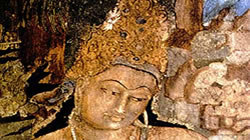 Ajanta Caves
Ajanta Caves
In contrast to the Hinayana excavations at Ajanta, which are virtually devoid of carvings, are the ornate sculptures of the Mahayana period. These carvings are remarkable for their classic qualities and display a graceful elegance, restraint and serenity. The sculptural themes, mostly related to the life of the Buddha and the Buddhist divinities, are adorned with decorative columns and medallions. In the shrines are huge figures of the Buddha in the meditation and teaching pose. Their benign expression and grace of form evoke a sense of awe and reverence.
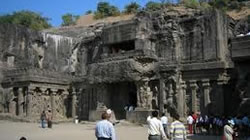 Ellora Caves
Ellora Caves
The ancient village of Ellora, known for centuries to the world as verul, featured prominently in the travelogues of Arab and European travelers, as it lay at the crossroads of ancient trade routes. Tucked away in the lap of a crescent-shaped hill, the caves of Ellora have been carved, in a north-south line, looking across the vast Deccan plain. The Ellora caves comprise the Buddhist caves: Nos. 1-12. from the 5th century to the 7th century AD; the Hindu caves : Nos. 13-29, from the 8th to 9th century AD ; and, the Jain caves: Nos. 30-34 from the 9th century to the 11th century AD.
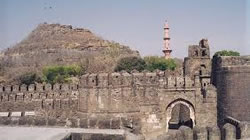 Daultabad Fort
Daultabad Fort
Almost 800 years ago, Daulatabad, then called 'Devigiri' was a thriving city. It was founded by Bhillamraja of the Yadava dynasty in 1187 AD. Later, the fort of Daulatabad passed through the hands of several dynasties in the Deccan. Less than 150 years after the Yadava dynasty, Daulatabad also became the capital of India for a short period during the reign of Sultan Muhammad-bin-Tughluq, who gave the city its present name. But very soon the charm of this ancient city faded.
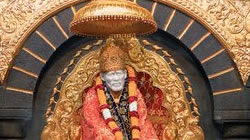 Shirdi Saibaba
Shirdi Saibaba
Shirdi is a highly venerated town not only by the local people but also by the people from all parts of the country. It is one of the most significant pilgrimages for the Hindus and Muslims alike. This place is acclaimed for its spiritual importance and the eminent saint Sai Baba spent the most important part of his life here. This sacred place is strewn with a number of pilgrimage spots including the Sai Baba Temple, Shri Khandoba Mandir, Dwarkamai (Mosque), Chawadi, Lendi Baug, Samadhi of Abdulbaba and Maruti Temple....
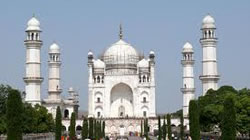 Bibi Ka Maqbara
Bibi Ka Maqbara
This inscription tells us that the tomb was designed by Ata-ullah, an architect, and constructed by Hanspat Rai, an engineer. The marble used in its construction is said to have been brought from the mines situated near the 'Pink City'. The design of the Bibi Ka Maqbara has largely been based on the Taj Mahal of Agra. However, it could not rival the magnificent 'Monument of Love' and was reduced to a poor imitation. Still, the mausoleum is today known as the 'Taj of Deccan'.
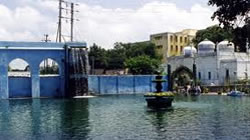 Panchakki
Panchakki
Panchakki otherwise known as the water mill was built during the early years of the 17th century. The mill used to grind grains for the pilgrims. It was so designed that it generated energy through water which was brought from a spring on a mountain.
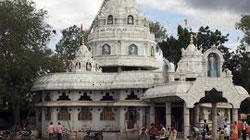 Khuldabad Temple
Khuldabad Temple
Situated 25 kms from Aurangabad city Khuldabad may be a small town in Aurangabad district, but it is worth including it in the list of must see places when you visit Aurangabad. The Bhadra Maruti temple here has made the place an important pilgrimage center. The view of this marble white painted temple from a distance is very inviting. The temple is crowded on Saturdays with long serpentine queues for darshan, as it is considered to be an auspicious day to worship Lord Maruti (also called Hanuman).
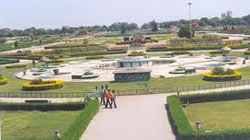 Paithan
Paithan
51 Km south of Aurangabad, the looms of Paithan still weave the beautiful Paithani saris that are prized by women. The town is also famous for the Dnyaneshwar Udyan, which is the largest garden in Maharashtra, and a museum which treasures a fascinating collection of art. The Jaikwadi Dam nearby is a bird watcher's delight. The garden is on the lines of Vrindavan Garden of Mysore with channels of flowing water, musical fountain, varied trees, plants, shrubs, and flowers. It is one of the best maintained garden. The lighting arrangement is also very charming. The entire garden creates the most picturesque and enchanting environment.
 Sai in Dhoop Gaon under the neem tree
Sai in Dhoop Gaon under the neem tree
Miracles are Miracles - Some believe in them and some don’t.. Some Sai devotees after seeing the below picture might feel the bliss of Sai darshan and some devotees might try to search logic in it. But whether you believe it or not , Sai has shown his presence to all His devotees in some form or the other. Some have seen Baba in Shirdi , some have seen Baba in their houses, some in their dreams, and for some of His staunch devotees- Baba is everywhere and life is full of Sai leelas for them. Here is one such leela of Baba that was captured thru a photograph ,where one can clearly see Baba's shadow under the neem tree.. Below is a copy of the email sent to me by Sai Bhakt Manu Gidwani. My sincere thanks to him for sharing this wonderful leela of Baba with all Sai devotees.
May Sai always be with all of us and may our faith and devotion in Sai help us to see the magic of Baba, that keeps happening even after his samadhi.
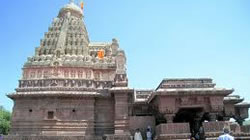 Grishneshwar Temple
Grishneshwar Temple
Grishneshwar is an ancient pilgrimage site revered as the abode of one of the 12 Jyotirlingas of Shiva. It is located at a distance of 11 km from Daulatabad near Aurangabad in Maharashtra. Daulatabad was once known as Devagiri. Located nearby are the popular tourist attractions Ellora - featuring ancient rock cut monuments from the 1st millennium CE, and Ajanta known for its exquisite cave paintings again from the 1st millennium CE. The Grishneswar temple was constructed by Ahilyabhai Holkar who also re-constructed the Kashi Viswanatha temple at Benares and the Vishnu Paada temple at Gaya. Grishneshwar is also known as Ghushmeshwar.
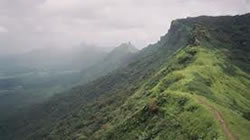 Mhaismal
Mhaismal
Mhaismal, also spelt as Maheshmal, is a small hill station, situated at an altitude of 1067 m, in Aurangabad District of Maharashtra. It is about 12 km from Khuldabad on the way to Ellora caves.













